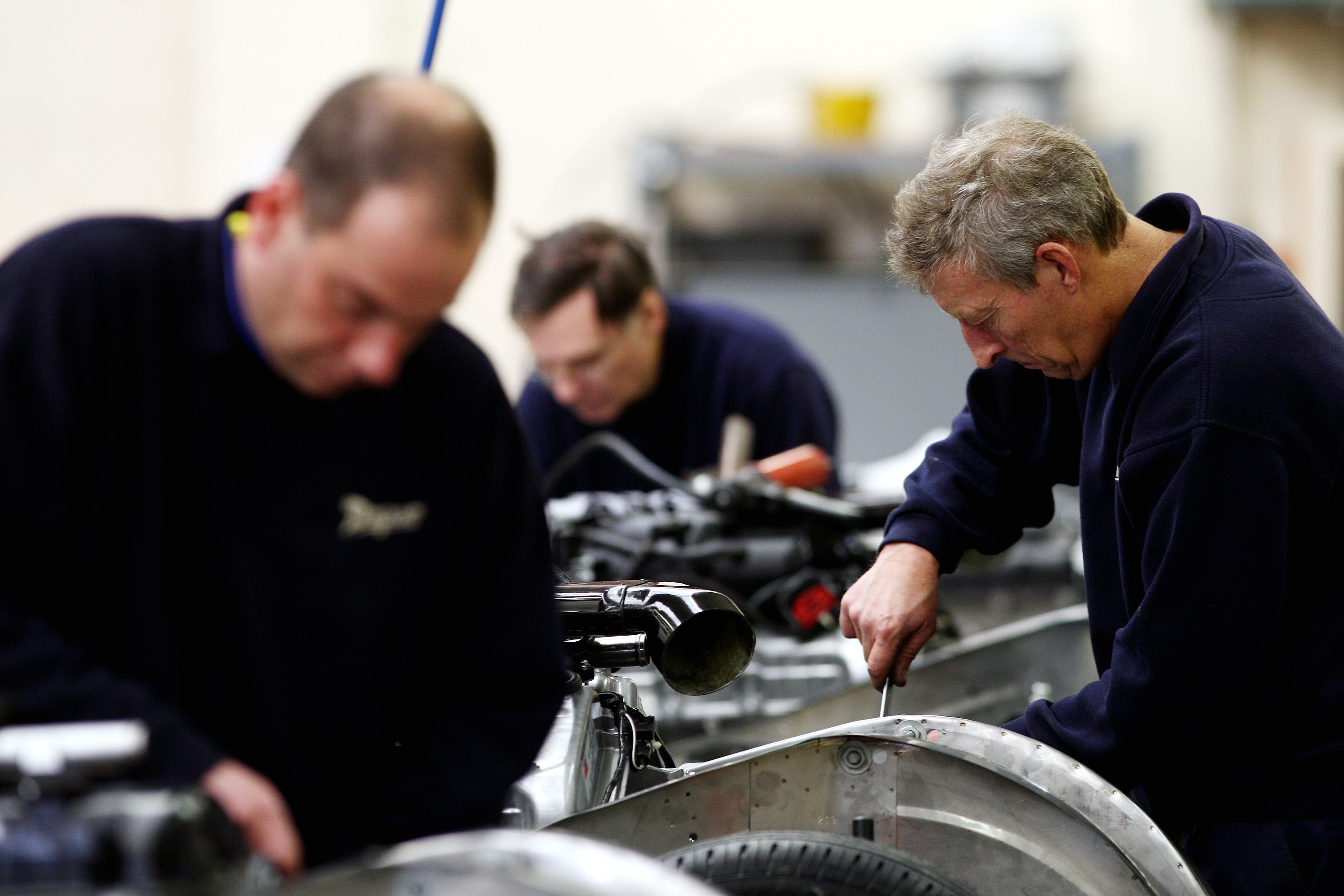UK factory slump deepens as European demand wanes
The S&P Global/CIPS UK manufacturing PMI survey fell from 47.2 in November to 46.2 in December.

The UK’s manufacturing downturn deepened further at the end of the year and business confidence sank to a 12 month-low, according to a new survey.
The S&P Global/CIPS UK manufacturing PMI survey fell from 47.2 in November to 46.2 in December.
The score remains below the 50.0 threshold, which indicates that the sector is contracting.
It marks the 17th month in a row that activity has declined as factories grapple with a prolonged dip in demand at home and abroad.
Manufacturing firms, which includes carmakers, engineers and chemicals firms, said they produced less last month as a result of fewer orders from clients.
With concerns about high interest rates and the cost-of-living crisis hurting demand, the outlook for manufacturers in the months ahead remains decidedly gloomy
Less demand from overseas companies and firms reducing their stockpiles also resulted in less work during December, the survey found.
Poor weather conditions were also blamed for a decline in activity.
Rob Dobson, director at S&P Global Market Intelligence, said: “UK manufacturing output contracted at an increased rate at the end of 2023.
“The demand backdrop also remains frosty, with new orders sinking further as conditions remain tough in both the domestic market and in key export markets, notably the EU (European Union).”
The slump has had an impact on manufacturers’ confidence, with business optimism falling to a 12-month low in December, reflecting tougher economic conditions, closures among clients and higher interest rates.
Mr Dobson added: “With concerns about high interest rates and the cost-of-living crisis hurting demand, the outlook for manufacturers in the months ahead remains decidedly gloomy.”
Elsewhere, job losses were recorded for the 15th month in a row, as more firms made redundancies or initiated hiring freezes to control costs with demand waning.
Nevertheless, makers said they expect production to rise on average over the year ahead, and waiting times dropped further.
But given that the manufacturing sector accounts for only around 10% of overall economic output, and the services sector activity looks set to recover, we think a recession will be avoided
Martin Beck, the chief economic adviser to the EY Item Club, said 2023 ended on a “disappointing note” but manufacturers should begin to see conditions improve this year.
He said: “The post-Covid global readjustment of consumer spending patterns from goods back to services has probably now largely run its course, relieving manufacturers of a major headwind faced over the last year.
“An easing in cost-of-living pressures following a swift decline in inflation in the UK and abroad should support demand for goods.”
Meanwhile, Gabriella Dickens, senior UK economist for Pantheon Macroeconomics, said the prolonged manufacturing downturn should not mean Britain is headed for a recession.
“All told, we think manufacturing output will continue to decline over the next few months,” she said.
“But given that the manufacturing sector accounts for only around 10% of overall economic output, and the services sector activity looks set to recover, we think a recession will be avoided.”
Bookmark popover
Removed from bookmarks